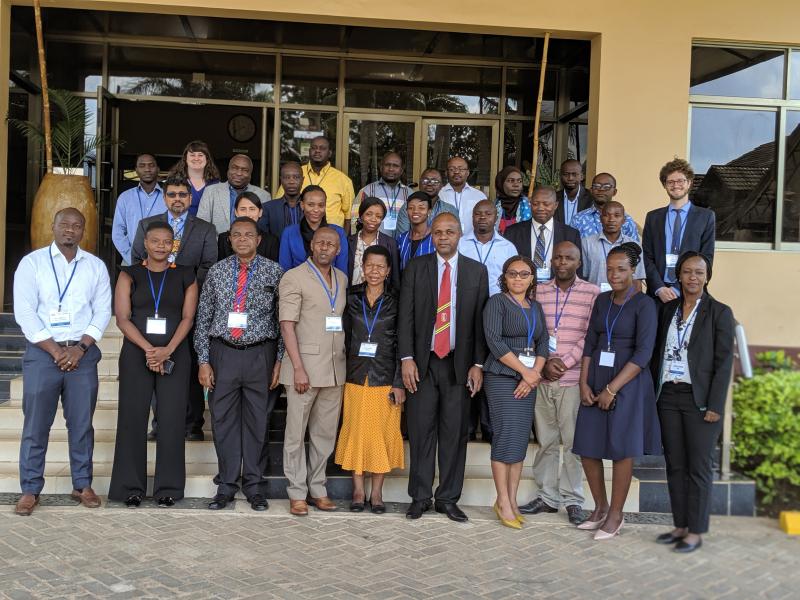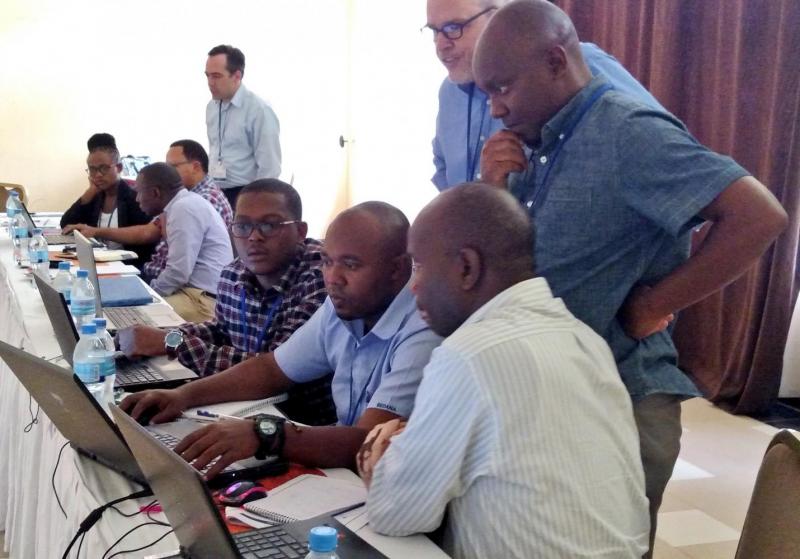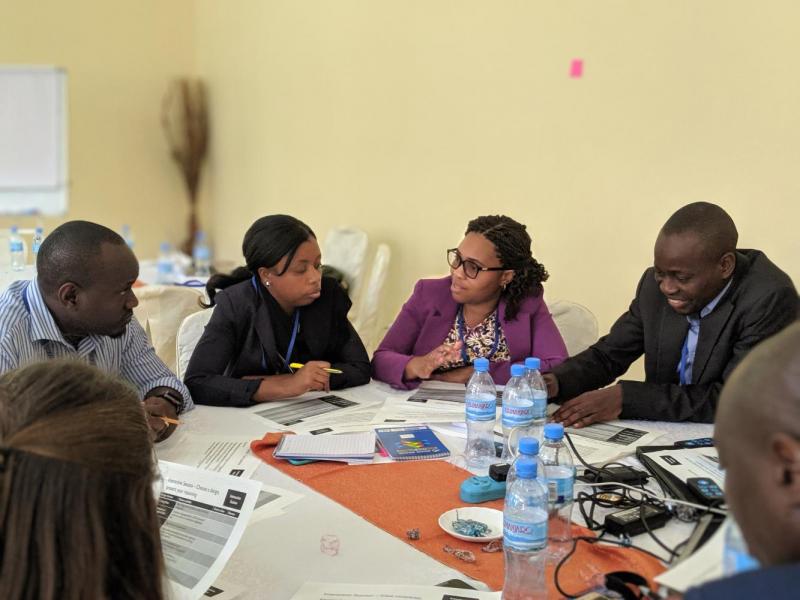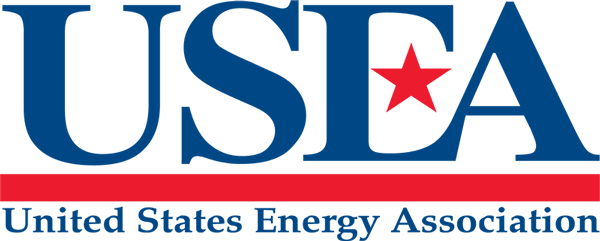Tanzania

The U.S. Energy Association (USEA) supports the government of Tanzania through a capacity building partnership program with the Tanzania Electric Supply Company (TANESCO), the Zanzibar Electricity Corporation (ZECO), and the Tanzania Petroleum Development Corporation (TPDC). This program is part of the Power Africa Initiative of the U.S. Government.
Previous partnership activities have focused on project and contract management, energy sector restructuring and governance, and how to develop succession plans. EUPP also conducted a training for Members of Parliament to introduce the energy sector and expose them to energy policy, planning and governance to give them a better understanding of the sector and thus improve their ability to address energy issues with effective legislation.
At the request of USAID/ Tanzania, activities for FY 2020 will focus on building the capacity of high-level government officials and TANESCO staff in the areas of competitive procurement, private sector participation, and energy sector reform.
Tender for 350 MW of Renewable Energy
Continued and ongoing EUPP support to the Government of Tanzania has resulted in an ongoing tender for 350 MW of renewable energy.
Tanzania Utility Partnership
Tanzania is working towards providing universal energy access and is analyzing different ways to achieve this goal. Three approaches they are pursuing are reverse energy auctions, exploring and utilizing natural gas and liquified natural gas (LNG), and public private partnerships.
Reverse Auctions
Tanzania has launched a reverse power auction and the Government of Tanzania (GOT) and the various stakeholders would like continued support to improve the process. USEA has worked with the GOT and the various stakeholders on this issue since 2016 and continues to support this effort through the sharing of best practices and lessons learned.
Earlier in 2019, Tanzania announced its first auction and shortlisted bidders after a Request for Qualifications (RFQ) process. As Tanzania already has established guidelines and procedures in place for a reverse auction, EUPP will continue to work with Tanzania as requested to refine the procedures, PPAs, RFQ, and bid document review process.
Draft Action Plan to Implement Reverse Power Auctions
EUPP worked with a variety of government stakeholders to produce a draft action plan for implementing reverse power auctions for increased generation projects. This draft plan included establishing a competitive bidding task force and a flowchart for implementing reverse power auctions.
Reverse Power Auction Knowledge Increased
EUPP activities increased knowledge for members of the reverse auction task force on how to design and hold a reverse power auction.
Pre-qualifications for Competitive Tenders Issued
EUPP activities assisted Tanzanian executives in the issuance of pre-qualifications for competitive tenders for its initial series of reverse power auctions in the country.
Public Private Partnerships
Tanzania plans to develop Public-Private Partnerships (PPPs) in the energy sector to allow Tanzania to develop projects that are more long-term in nature through arrangements with several entities in the public and private sector. This arrangement is formed for the purpose of bringing better services to the sector and can include independent power projects, laws and regulation, power purchase agreements, and others. The objective of these partnership activities is to provide high-level government officials and senior utility staff with best practices and lessons learned in encouraging private sector participation analyze current laws and regulations to ensure they support PPPs, improve private sector participation, and identify potential PPPs in the energy sector in Tanzania.
EAST AFRICA GEOTHERMAL PARTNERSHIP (EAGP)
The EAGP, which ran from 2012 to 2018, promoted the development of geothermal energy resources and projects in East Africa. The EAGP program, which was aa partnership between USAID and the Geothermal Energy Association (GEA), encouraged and facilitated the involvement of the U.S. geothermal industry in the region. EAGP focused on six priority countries: Djibouti, Ethiopia, Kenya, Rwanda, Tanzania, and Uganda.
Through EAGP, USEA provided technical and transaction advisory support and capacity building to public organizations and government ministries involved in geothermal development in the region through executive exchanges, workshops and short-term technical assistance assignments to learn about geothermal best practices from their counterparts in the U.S. and third countries.
Facilitated U.S. Business Connections
Through the EAGP-sponsored exchange program to the GEA Expo and GRC Annual Meeting, Ethiopian and Kenyan geothermal officials made contacts with over 70 U.S. firms that supply many of their needed goods and services. EAGP delegates and their senior colleagues in attendance were able to generate new interest in the EA geothermal market among a larger audience of U.S. companies, through presentations on opportunities and procurement needs in EA (organized by EAGP and GEA). The successful event has resulted in a plan to engage U.S. industry members to give feedback on GDC’s, and possibly KenGen’s, tender design. This will improve GDC’s ability to execute transactions related to their goods and services tenders.
Provided Guidance for Development of East African Geothermal Centre of Excellence
Worked with industry experts and advisors to provide feedback and guidance based on the findings of the Icelandic International Development Agency (ICEIDA) Feasibility Study for the East African Geothermal Centre of Excellence and help to design curricula for the Centre
Assisted with Creation of Joint Development Agreement for PPPs
EAGP facilitated a short-term technical assistance program for Kenya’s GDC on producing a joint development agreement for PPPs in geothermal development. EUPP worked with GDC and MoF on the legal structures, financially viable project structures for PPPs and developed a set of recommendations for GDC and produced a market assessment of GDC’s proposed joint development structures.
Assisted in Development of Geothermal Strategies
Provided support to USAID and Power Africa Transactions and Reforms Program (PATRP) in updating and implementing the Power Africa Multi-Donor Geothermal Strategy for East Africa and assisting USAID in developing its own internal Power Africa inter-agency geothermal strategy.
EASTERN AFRICA POWER POOL PARTNERSHIP (EAPP)
Tanzania is a member of USEA’s regional Eastern Africa Power Pool (EAPP) Partnership that currently focuses on advanced modeling and long-term planning. USEA will facilitate a series of training programs on load flow modeling and conducting security analyses using PSS/E software platform. These trainings will address insufficient levels of modeling and planning capacity among EAPP planning staff and planning committee members in individual countries. It will also build EAPP’s capacity in the advanced application of the PSS/E software, specifically in advanced power flow, contingency, voltage stability and dynamic analysis, transmission planning, power system operation, and the integration of renewable energy and HVDC systems.
EUPP also drafted and submitted a report on Power Trading in Ancillary Services and Energy Storage in East Africa: A Roadmap to USAID.
EAST AFRICAN TRANSMISSION PLANNING PROGRAM PARTNERSHIP (EATP)
The Eastern Africa Regional Transmission Planning Program (EATP) was conducted in 2014 – 2018 to foster regional cooperation in transmission planning and analysis between Ethiopia, Burundi, Kenya, Tanzania, Rwanda, and Uganda. The EATP developed the capacity of transmission planners in Kenya, Ethiopia and Tanzania to develop regional electric power transmission corridors that will (1) serve as the backbone infrastructure for trade and exchange of electricity, (2) enable investment in new electric power generation plants, (3) support integration of clean energy generation resources, and (4) improve system reliability. The EATP created a Working Group that continued to further refine the national planning models to support regional harmonization and reviewed regional models. The Working Group members include the following organizations: the Eastern African Power Pool, EEP, Kenya Electricity Transmission Company, Ltd., KPLC, TANESCO, Régie de Production et Distribution d'Eau et d'Electricité, Rwanda Energy Group, Ltd., and Uganda Electricity Transmission Company, Ltd. Under EUPP, the EATP developed regional network planning models, beginning with a load flow model for East Africa, progressing to dynamic models over time. The members of the EATP Working Group were trained to prepare each of the models, expanding the pool of qualified network planners in East Africa to continuously fine tune the regional planning model. Topics covered under this partnership included:
- EATP Regional Network Load Flow Models;
- EATP Load Flow and Dynamic Training;
- Study to Calculate Losses for the EKT Wheeling Transaction; and
- NELSAP/TRACTABEL Study Review.
National Power Balance Settling
The development of a consensus for settling national power balances (import/export) within the regional model for each country. The national power balances will form the basis of the network analysis to be completed using the 2020 load flow model.
Development of a Regional Project Tracker
The initiation of a Project Tracker to determine the probability of commissioning generation and transmission projects within the planning horizon being analyzed (2020).
Adoption of Terms of Reference
EATP countries adopted a Terms of Reference to conduct a sensitivity analysis of regionally significant candidate transmission investment projects using agreed upon parameters.
Self-Assessment Dynamic Modeling and Analysis Tool Developed
The creation of an EATP Self-assessment Dynamic Modeling and Analysis Tool to enable transmission utilities to identify network planning institutional and human resource and capacity deficits and benchmark their capacity against one another.
Creation of Standard Operating Procedures Manual
The creation of a step-by-step Standard Operating Procedures Manual that outlines the planning criteria, defines strict requirements and gives directions and recommendations for construction, usage and update of the EATP regional model in load flow software.
NILE EQUATORIAL LAKES SUBSIDIARY ACTION PROGRAM (NELSAP) PARTNERSHIP
Tanzania is a member of the regional Nile Equatorial Lakes Subsidiary Action Program (NELSAP) Partnership. In 2016 and 2017, the NELSAP Partnership focused on capacity building activities for NELSAP member states (Ethiopia, Kenya, Rwanda, Tanzania and Uganda) on the issues of contract and project management. USEA facilitated several regional workshops for project management specialists, engineers, financial analysist and legal advisors from East African utilities on contract development and negotiations, best practices in procurement, risk management, and dispute resolution. Workshop deliverables included customized project management documents and templates, as well as action plans for regional utilities to improve their contract and project management practices.
In 2019, the NELSAP Partnership’s focus shifted to power trading with the following objectives:
- Creating awareness among regional power industry stakeholders on possible mechanisms for allocation and compensation for ancillary service costs, as well as energy storage alternatives, based on U.S. and other international practices;
- Providing senior regional government officials and utility management with clear understanding of the existing gaps in the current set-up of ancillary services in the East African region;
- Creating a platform for generating sustainable discussions among East African energy stakeholders on policy, regulatory and market barriers for developing both local and regional ancillary and energy storage markets.




